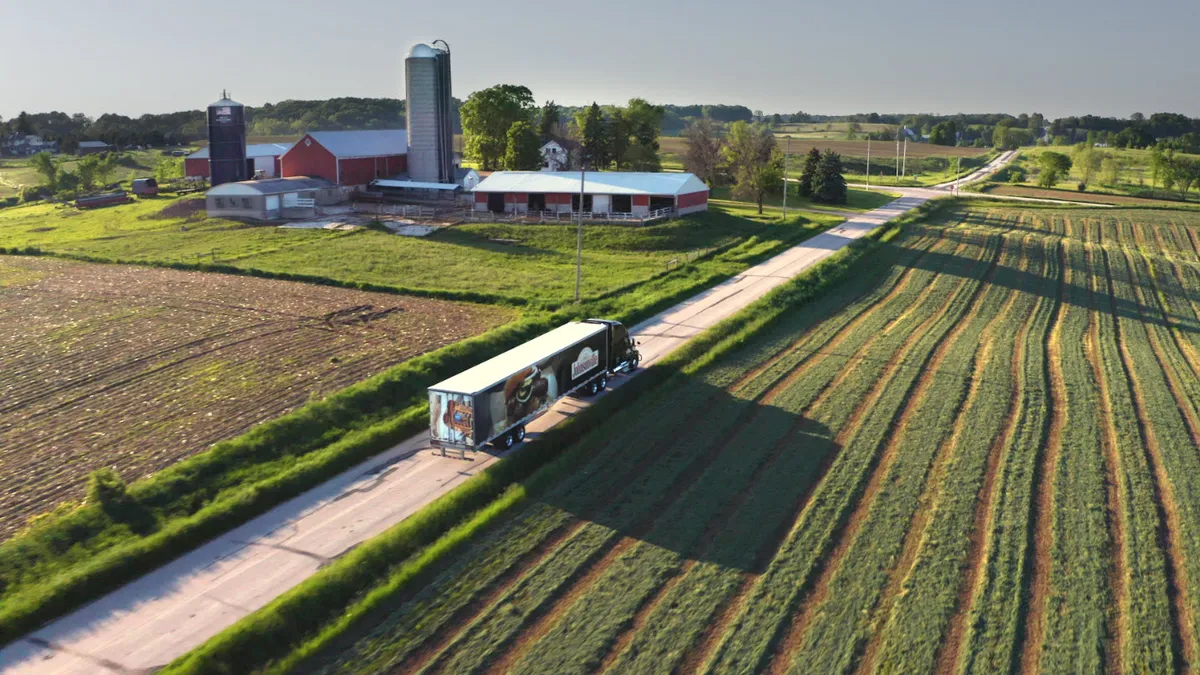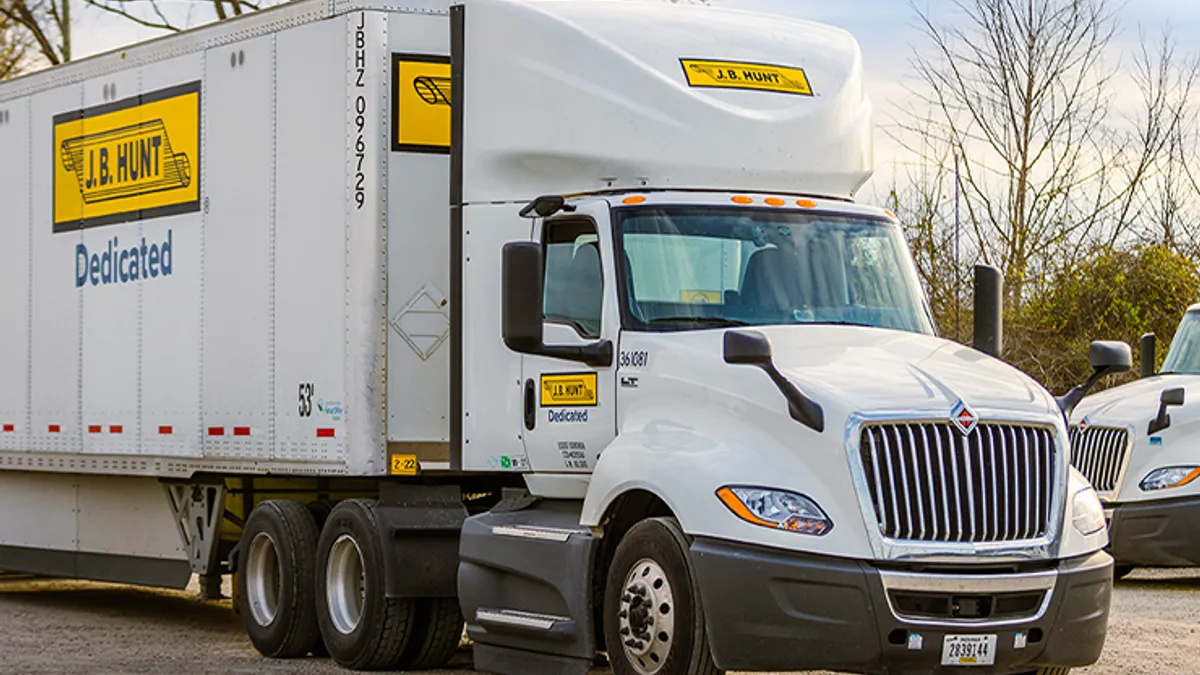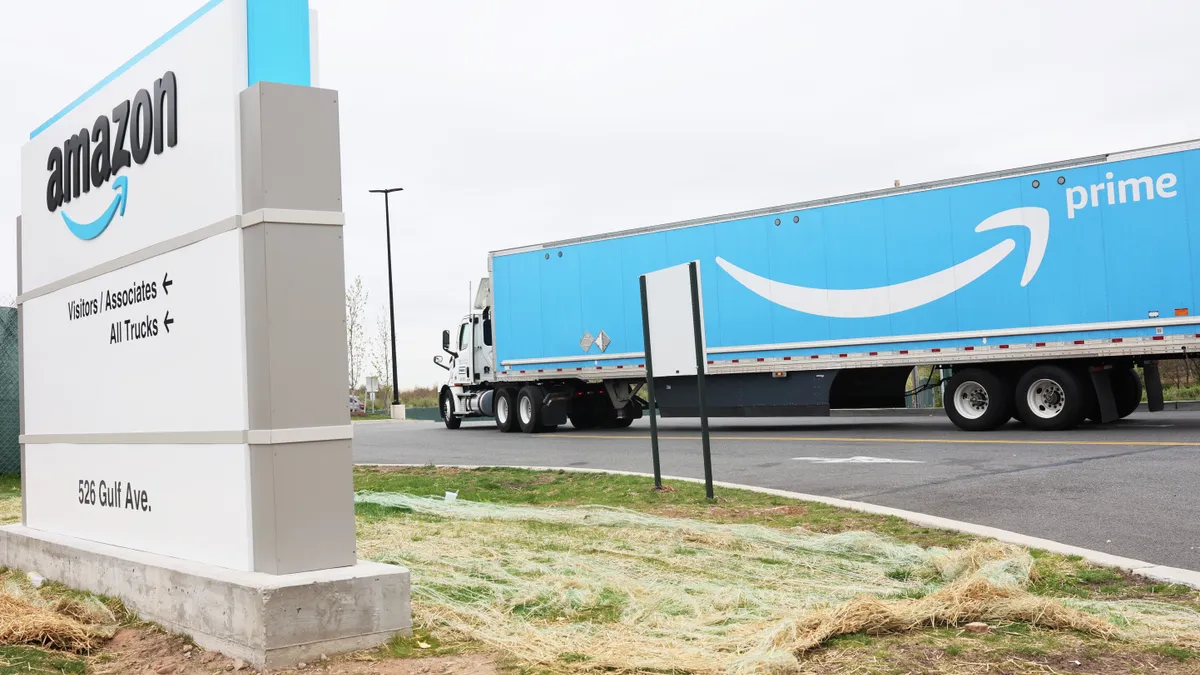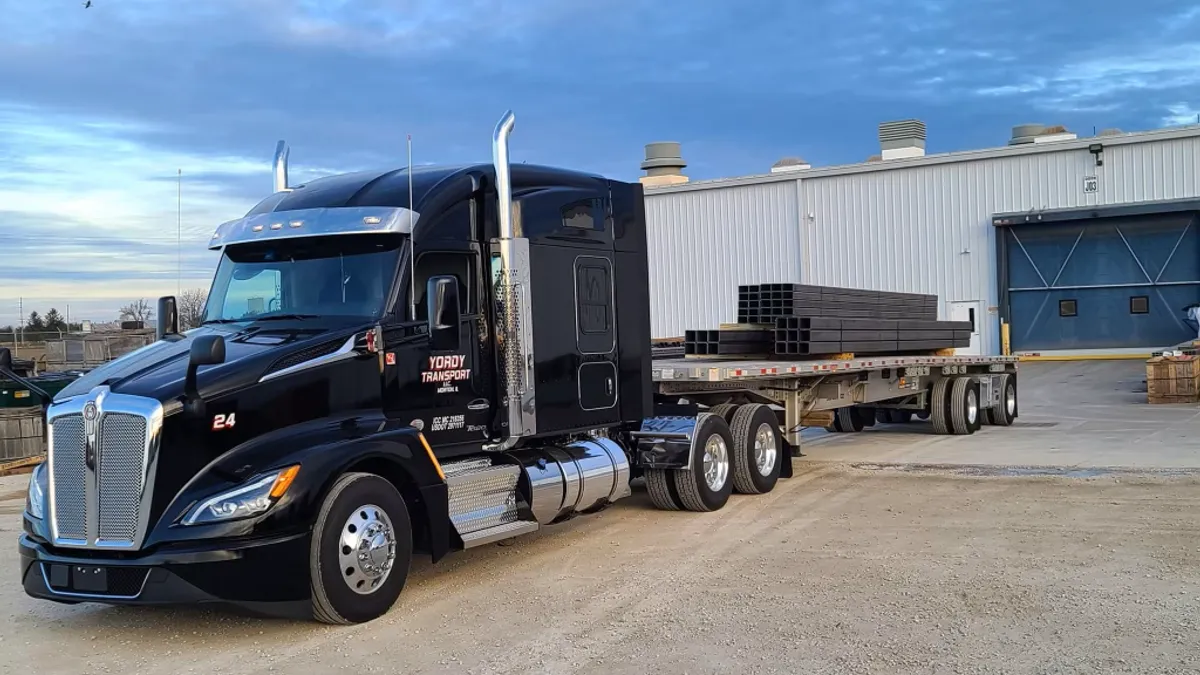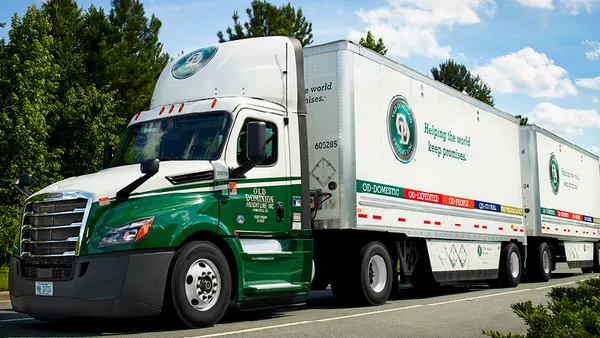Taylor Collins, co-founder of Roam Ranch, used to be able to ship products from his ranch in Texas to retail customers around the country with two weeks' notice. But in recent months, that timeline lengthened.
Shippers have encountered a tricky-to-navigate trucking market over the last several quarters as a deluge of freight pushed up prices. Manufacturing issues have only compounded the situation, with tractors, trailers and replacement parts in short supply.
"Freight is going up. That's just the reality of where we live today," said Sarela Herrada, co-founder of Simpli, an ingredients company focused on vertical integration and ethical sourcing.
Spot reefer rates have surpassed $3 per mile, with contract rates increasing in lockstep. Meanwhile, LTL prices are higher than historic levels and surging demand has led some carriers to turn away customers.
TL and LTL pricing rises
It's not just the pricing and capacity issues straining supply chains, but also reliability. Distribution center appointments can be elusive to book and labor constraints have slowed loading and unloading at some warehouses.
"The problems that we've had with LTL freight have been more about delays," said Justin Marx, CEO of Marx Imports, which imports specialty and premium meats. "Trucks are late."
Delays bring the potential of spoilage and can create a ripple effect where if a trailer isn't unloaded on time, the truck may be late to deliver its next shipment. Making matters worse, poor data and visibility into the status of shipments make it tough to know the extent of delays.
The traceability problems are particularly acute in LTL, where products may stop at several distribution centers and switch trucks several times along their journey.
"We know it's on the road," Collins said. "We can't exactly say where it is. The trucking company can't even specifically say, but it's in one of their warehouses waiting to get picked up."
For many farmers and ranchers like Collins, nearly no viable alternative exists to over-the-road transport — meaning they pay the price, or they don't ship. While food suppliers and distributors cannot evade the trucking market, there are some strategies businesses can adopt to lessen the impact of market forces.
Go where there's less congestion
Limoneira, an agribusiness focused on citrus, will "probably err on the side of bringing more deliveries to the East Coast markets and using trucking to bring it West to avoid the congestion," CEO Harold Edwards said on an earnings call this month.
It's a shift for many businesses that historically relied on the nation's largest ports in Southern California and New York. Traditionally, transit times were shortest from the major ports, said Herrada of Simpli.
But in this day and age, it's faster to bring product into places like Baltimore and truck it into larger port areas such as New York.
"You really have to look at the full picture in order to get product in your hand," Herrada said.
Grow in-house logistics
Wisconsin-based Johnsonville Sausage plans to expand its private fleet to manage the capacity crunch.
While it's not uncommon for large food producers, dairies and grocers to operate private trucking fleets, it's not typically a business farmers and ranchers undertake.
"They're born and bred to live off what they've got and to minimize unneeded equipment," said Curt Covington, senior director of institution credit at AgAmerica.
Customer service is the main reason for having a private fleet
Johnsonville will grow its stable of trucks from about 30 to 50 or 60 this year, said Curt Reynolds, director of logistics. It also launched a new logistics business last year, which opens up backhaul reefer capacity on its routes for other food and beverage manufacturers to use.
Owning trucks is asset-intensive, and supply chain issues with components and manufacturing have only compounded the challenges of having a private fleet. But the volatility of the freight market led Collins to bring some logistics in house at Roam Ranch.
The company is investing in refrigerated and frozen trucks, along with hiring its own delivery team, Collins said. It's also doing some distribution in central Texas.
"That's something we never envisioned ourselves getting into," Collins said. "But this is our home and we want to have a very strong presence here. We just cannot have that relying on third parties."
Communicate with vendors and customers
Like any obstacle in the supply chain, shippers don't have to be alone in conquering challenges.
Johnsonville has worked with its grocery customers to map out processes and understand various pain points related to on-time, in-full deliveries.
"What can we do as partners to solve the problem? Versus hitting each other over the head with fines," Reynolds said.
"You really have to look at the full picture in order to get product in your hand."

Sarela Herrada
Co-founder of Simpli
Marx described a partnership his business has with Silver Fern Farms in New Zealand, which supplies beef and venison. Over the years, the two entities have developed a strong relationship, and Marx makes it a priority to get the farm's product to the customer.
It's a similar situation on the customer side, and gaining the trust of restaurant buyers when transportation is delayed and supply can be disrupted.
"That's one of the biggest solutions to this supply chain mess," Marx said. "Having a relationship mentality rather than a transactional mentality."



